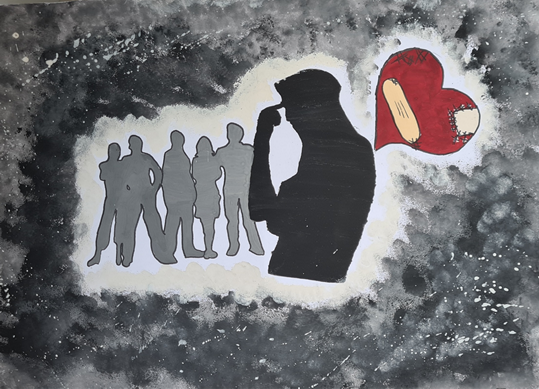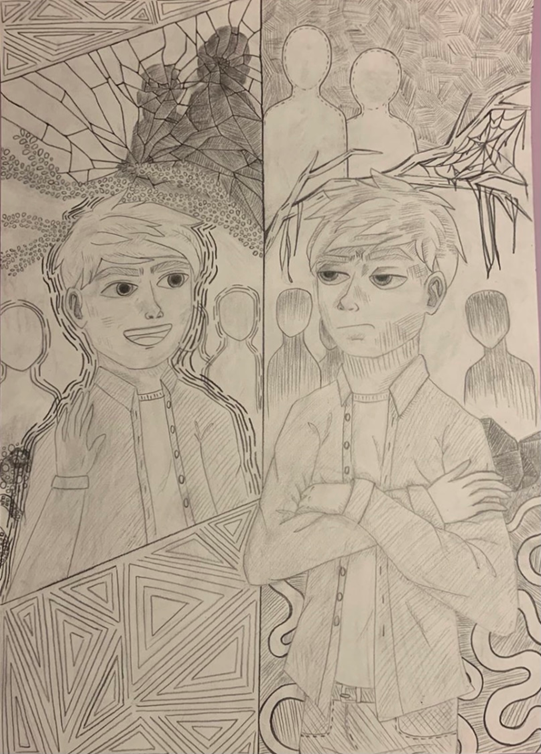Profesorii și elevii Colegiului Naţional "Mircea cel Bătrân" realizează diverse activităţi menite să crească nivelul de conștientizare a importanţei învăţării mai multor limbi străine într-o Europă plurilingvistică tot mai dinamică.
În acest context, în perioada 1 martie – 26 septembrie, s-a desfășurat, online, a VI-a ediţie a Concursului Plurilingvistic Judeţean "Creo-Creare" al cărui scop general este promovarea creativităţii și a inteligenţei sinestezice. Obiectivele specifice ale proiectului sunt:dezvoltarea abilităţilor de lucru ȋn echipă; crearea unui cadru propice pentru comunicare în limbă străină; facilitarea accesului la cultura și civilizația europeană în mediul online.
Concursul se desfășoară pe echipe formate din 3-5 membri care realizează, pornind de la o temă dată, un proiect alcătuit dintr-un text: poezie/proză scurtă/scenariu/eseu într-o limbă străină (engleză, franceză, germană, italiană, portugheză, spaniolă, rusă şi turcă) și, la alegere, un desen/o partitură; produsul finit este un afiș format A 3 sau o partitură format A 3, la care este anexat textul tehnoredactat în limba străină aleasă.
Tema de anul acesta a fost:"Cuvintele sunt imaginea sufletului" (Goethe)
Concursul se adresează elevilor din clasele V- XII, de la filiera teoretică, precum și de la cea tehnologică, iar anul acesta au trimis lucrări 152 de elevi, dintre care 85 s-au calificat pentru etapa finală a jurizării. De asemenea, 15 profesori au fost implicaţi în coordonarea echipelor participante la concurs.
Organizatorii sunt Colegiul Naţional "Mircea cel Bătrân", echipa fiind formată din prof. dr. Vasile Nicoară, directorul instituţiei, prof. Andaluzia Arif și prof.dr. Luminiţa Radu, având drept partener Fundaţia "Alumni".
Rezultatul a fost mai mare decât cel așteptat în condițiile pandemice actuale, iar participanții de la școli importante din județ. Materialele vor constitui material de lucru pentru revistele în limbi străine ale Colegiului ("Hello", limba engleză; "Misch-Masch", limba germană).
Câteva lucrări câștigatoare ale premiului I:
The Word
Words - sounds uttered by any mouth, a way of communication that manages to inevitably connect people, a connection that remains indifferent to the passing of time. Through words we manage to mirror states and feelings. They also define what is in a person's mind and soul, subtly outlining personalities. Words express the tumult of the soul, any strong and deep emotion being described by them. Thus, words can be considered tears and smiles of the heart that become woven into our minds, resembling the sincerity of the eyes. Therefore, we deduce the power of words that can serve as a psychological weapon on the fragile mentality and human nature, or they can be the sweetest caress of a lover in the arms of his amour.
Words can create or destroy worlds using the art of manipulation, increasingly mastered by others in the contemporary period. It creates deep paths to the purest souls, detaching from these small pieces, the words thus becoming "gold bracelet" for the most hypocritical minds and "pearls" stolen from the silver rays of the moon for the most sincere souls. However, without words life would have no color, even if words are themselves without a specific color, each word acquiring a unique meaning for any receiver, creating a gap amplified by factors such as perception own behavior, language or meaning.
Thus, we can say that the quote "Words are the image of the soul" has a broad meaning, which emphasizes the depth of words and how they remain anchored in someone's soul without realizing it. That being said, we can conclude that words can transcend the limit of the real to the unreal, or the unreal to the surreal, as a flight full of ascendants and descendants, as a mad dance of words.

Die Seele, eine imaginäre Grenze
Stellt euch eine unterschiedliche Welt vor,, wo jedes Kind zur Geburt einen Namen bekommt, der seine Persönlichkeit definiert.
Nun besteht diese Welt. Trotzdem kann man seinen Namen durch seine Wahlen im Leben und seine Beziehung mit den anderen verändern.
Häme, ein Junge, der nur zwölf Jahre alt ist, führt ein schweres Leben wegen seines Namens. Er denkt immer daran, warum er so heißt, da er sich keine böse Person fühlt. An einem Tag kam er in die Schule und er hat seine Mitschülern, Nettigkeit, Freundschaft und Hässlichkeit im Streit gefunden. Er wusste nicht, was passiert ist und er wird von der Aggressivität überrascht. Erste Sache, die er gehört hat, waren die bösartigen Worte von Nettigkeit:
,,Ein Kind wie du könntest nie mit uns befreundet sein. Du bist verschieden und du kannst dich nicht in dieser Klasse integrieren.''
Nachdem der Junge verletzt wurde, versucht er zu erwidern, aber er war in der Minderheit:
,,Aber ich habe nichts ..." würde er sagen.
,,Du hast kein Recht zu sprechen, da du so hässlich aussiehst." hat ijn Freundschaft reingeredet.
Häme hat sich eingemischt:
,,Jungen! Es ist nicht schön ihn zu kränken. Außerdem können sie jemanden nach seinem Aussehen beurteilen."
,,Warum sprichst du, wenn du Häme heißt?"hat Nettigkeit gefragt.
Die Antwort war klug und die Diskussion ist von Hämes Mitschülern betrachtet worden.
,,Mein Name definiert meine Persönlichkeit nicht und was ich denke. Die Leute sind oft der Meinung, dass sie einen nach seinem Namen kennen, aber es ist nicht echt. Es ist nicht genug, Nettigkeit und Freundschaft zu heißen, wenn man sich mit den anderen Leuten hämisch und unhöflich verhält. Die Fakten belegen, wer man ist. Die Außerlichkeit und die Meinungen anderer Leute sind nicht wichtig."
Das hat Hässlichkeit Kraft geboten und er hat Mut gefasst, seine Gedanken auszudrücken:
,, Ihr verdient euren Namen nicht. Jetzt zeigt Häme seine echte Persönlichkeit und er hat ein großeres Herz als ihr."
Wie durch ein Wunder haben die Jungen ihren Namen verändert. Hässlichkeit ist ,,Freundschaft" genannt worden und Häme wurde ,,Nettigkeit". Seine Worte waren stark und umfassend. Er hat bekommen, was er immer wollte: Eine Chance zu zeigen, was er in seiner Seele trägt."
Somit hat Häme gelernt, dass die Worte das Bild seiner Seele sind.




 Fără căldură și apă caldă în câteva zone din Constanța
Fără căldură și apă caldă în câteva zone din Constanța  Traficul feroviar este deschis pe toate magistralele de cale ferată
Traficul feroviar este deschis pe toate magistralele de cale ferată  Un tronson al străzii Baba Novac din Constanța a intrat în reabilitare
Un tronson al străzii Baba Novac din Constanța a intrat în reabilitare 







































